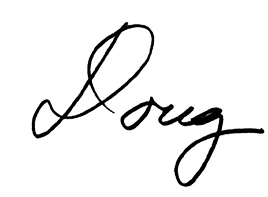
October 9, 2013
As meditation deepens, equanimity gets stronger. At first is it lovely and peaceful. But after a while, it can be unsettling. Most of our lives are laced with stress – we work with it, adapt to it, manage it. As equanimity seeps into our being, our work, adaptation, and management start to dissolve. It can be alarming. At one point I thought, “If I’m not struggling, will I remember how to brush my teeth?” I half-seriously wondered if, without some tension, even rudimentary skills would disappear.
I hear similar worries from meditators who say, “I don’t care as much as I used to. Am I going to turn into a bump on a log? I don’t want to be a vegetable.”
Not to worry. Equanimity is not the same as disinterest. Superficially they look the same, but underneath they are very different. Here’s a poem that captures the essence of equanimity. It was written by Donald C. Babcock and appeared in The New Yorker Magazine, October 4, 1947:
Now we are ready to look at something pretty special.
It is a duck riding the ocean a hundred feet beyond the surf.
No, it isn’t a gull.
A gull always has a raucous touch about him.
This is some sort of duck, and he cuddles in the swells.
He isn’t cold, and he is thinking things over.
There is a big heaving in the Atlantic,
And he is part of it.
He looks a bit like a mandarin, or the Lord Buddha meditating under the Bo tree,
But he has hardly enough above the eyes to be a philosopher.
He has poise, however, which is what philosophers must have.
He can rest while the Atlantic heaves, because he rests in the Atlantic.
Probably he doesn’t know how large the ocean is.
And neither do you.
But he realizes it.
And what does he do, I ask you? He sits down in it.
He reposes in the immediate as if it were infinity – which it is.
That is religion, and the duck has it.
He has made himself part of the boundless,
by easing himself into it just where it touches him.
I like the little duck.
He doesn’t know much.
But he has religion.
Equanimity is like the duck resting in the waves. Disinterest is like trying to transcend the ocean or turn away from the world out of a subtle (or not so subtle) aversion.
Equanimity is filled with ease. Disinterest is filled with subtle (or not so subtle) tension.
Equanimity is being at peace with what is, whether it goes “our way” or not. We may remain interested and engaged. If we can help someone or do some good, we’ll probably do it. But we no longer have an axe to grind or a philosophy to impose on innocent bystanders. Disinterest, on the other hand, is passive and disengaged.
With equanimity, the body and heart relax and the mind becomes clear and bright. Life is deeply fascinating. With disinterest, the mind and heart fade into a dull grayness.
However, spiritual growth carries risk. If we’ve been a political junkie, we may find those heated arguments less attractive. If we’ve stood apart from politics, we may feel our connection with all life so deeply that we’re drawn to engage. We change. Tastes in books, music, sports, movies, and entertainment may shift. If we’ve connected with friends through certain topics, we may find those topics less interesting and those relationships fading. In fact, as equanimity deepens we might become more content with solitude.
But becoming less frenetic is not the same as dulling out, fading into a mental mush, or being indifferent. Quite the opposite: life becomes more vivid.
So if you feel a growing equanimity and it worries you even subtly, notice the fear or tension in that worry. Think of how the duck might view it: see it, release it, relax into it, and maybe even smile inwardly. (That is to say, “Six-R” it).
There is so little equanimity in our world that many people do not really know what it is. So let it arise. Give it a shot. Remind yourself that if you become content and don’t like it, you can always change. In the meantime, relax and see what comes along. There is always something interesting.
